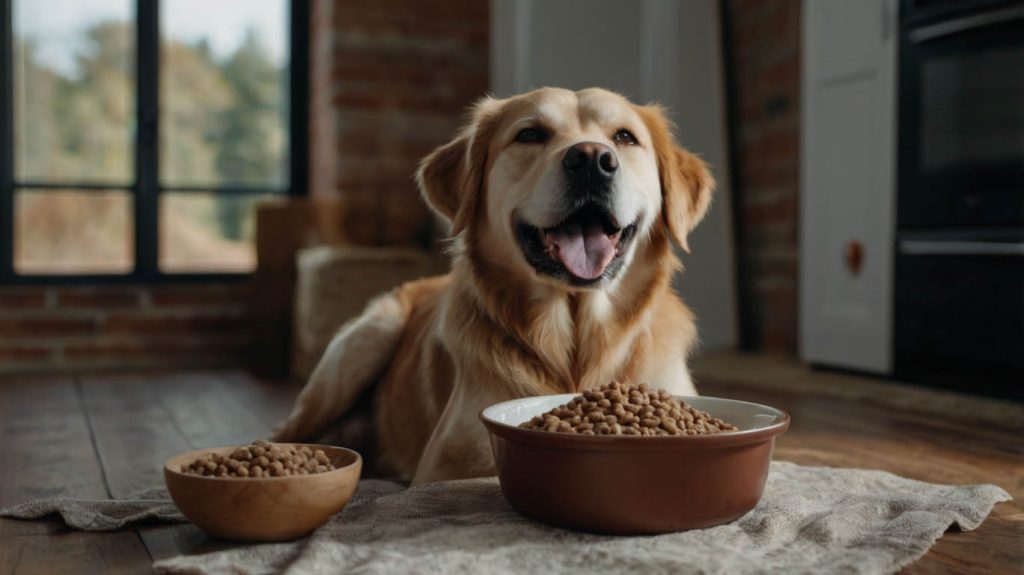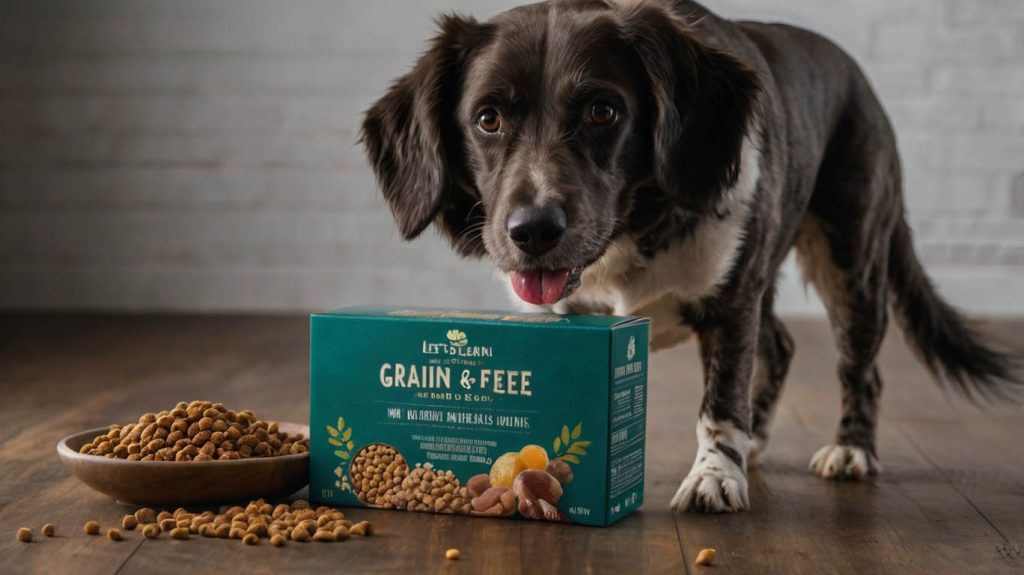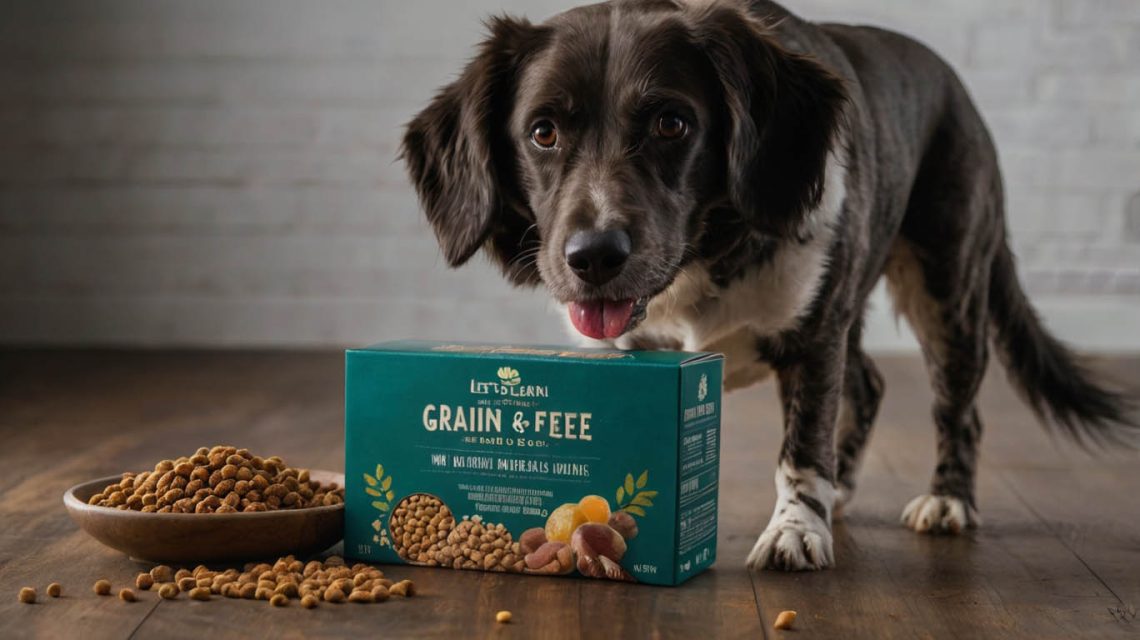Grain Free Dog Food Benefits: The Ultimate Guide for Pet Parents
Jessica watched her beloved dog, Milo, scratch relentlessly at his ears again. His coat, once glossy and vibrant, had become dull, and he seemed to be constantly battling itchy skin and minor digestive upset. She had tried different shampoos and supplements, but nothing seemed to provide lasting relief. A friend at the dog park mentioned she’d switched her own itchy dog to a grain-free diet with amazing results. Intrigued, Jessica went online but was immediately overwhelmed by a storm of conflicting information. She was left wondering: what are the real grain free dog food benefits, and could they be the answer for Milo?
Jessica’s story is one that plays out in homes all over the world. When you see your dog uncomfortable, you’ll do anything to help. The promise of a simple dietary fix is incredibly appealing, yet the controversy surrounding grain-free diets can make the decision feel paralyzing.
Consequently, this definitive guide is here to cut through the noise. We will explore the science behind grain-free diets, detail the potential benefits and the significant risks, and provide a balanced, authoritative perspective. Therefore, you can make an informed decision about your dog’s health and nutrition.
What Are the Perceived Grain Free Dog Food Benefits?
For years, grain-free diets have been praised for a variety of health improvements. While some of these are directly linked to the absence of grains, others are often a result of these foods simply being higher-quality overall. Let’s explore the most commonly cited grain free dog food benefits.

Potential for Alleviating Food Allergies and Sensitivities
This is the most common reason owners make the switch. While it’s true that some dogs are allergic or sensitive to specific grains like wheat or corn, it’s important to understand a key fact: true grain allergies in dogs are relatively rare. More often, dogs are allergic to the protein source in their food, such as chicken or beef.
However, for the small percentage of dogs that do have a genuine grain allergy, the benefit is undeniable. Removing the offending grain can lead to a dramatic reduction in symptoms like:
- Itchy skin, paws, and ears
- Hives and rashes
- Chronic ear infections
- Gastrointestinal upset
Improved Digestion and Better Gut Health
Many grain-free dog foods replace traditional grains like corn and wheat with more easily digestible carbohydrates like sweet potatoes, peas, and lentils. For some dogs, this can lead to better digestive health. Owners often report one of the most noticeable grain free dog food benefits is smaller, firmer, and less frequent stools. This indicates that the dog is absorbing more nutrients from their food and producing less waste.
Healthier Skin and a Shinier Coat
This is a frequently reported benefit, but it’s often an indirect one. Premium grain-free foods tend to be rich in high-quality animal proteins and fats, including essential fatty acids like Omega-3 and Omega-6 from sources like salmon oil and flaxseed. These fatty acids are crucial for skin and coat health. Therefore, the shiny coat might not be due to the absence of grains, but rather the presence of these high-quality fats.
Increased Energy Levels and Better Weight Management
Many grain-free diets are formulated to be higher in animal protein and lower in carbohydrates. A high-protein diet can help support lean muscle mass and provide sustained energy. For some dogs, especially highly active ones, this type of formulation can be beneficial for maintaining a healthy weight and optimal energy levels throughout the day.

The Controversy: A Balanced Look at Grain Free Dog Food Benefits
It is impossible to discuss this topic responsibly without addressing the significant controversy that has emerged in recent years. Understanding this is crucial for making a safe choice for your pet.
The FDA Investigation and Dilated Cardiomyopathy (DCM)
In 2018, the U.S. Food and Drug Administration (FDA) announced it was investigating a potential link between certain diets—many of them labeled “grain-free”—and a serious heart condition in dogs called Dilated Cardiomyopathy (DCM). DCM is a disease of the heart muscle that results in an enlarged heart and decreased pumping ability, which can lead to congestive heart failure.
The investigation found that many of the reported DCM cases were in dogs eating diets where legumes like peas, lentils, or potatoes were listed as main ingredients. This raised concerns that these ingredients might interfere with the absorption or synthesis of taurine, an amino acid critical for heart health.
It is crucial to note that the FDA has not found a definitive causal link and has not recommended that owners switch away from grain-free diets. The issue is complex and still under investigation. However, this potential risk must be weighed against the perceived grain free dog food benefits.
The Role of “BEG” Diets
The term “BEG” diets (Boutique, Exotic-ingredient, Grain-free) emerged from this controversy. It refers to foods from smaller manufacturers (Boutique), containing unusual protein sources like kangaroo or alligator (Exotic), that are also grain-free. The concern is that some of these boutique companies may not have veterinary nutritionists on staff or conduct the extensive feeding trials that larger, more established companies do.
Is a Grain-Free Diet the Right Choice for Your Dog?
So, how do you decide? The answer depends entirely on your individual dog.
When to Consider Exploring Grain Free Dog Food Benefits
- A Confirmed Grain Allergy: If your veterinarian has diagnosed your dog with a specific allergy to wheat, corn, or another grain, a grain-free diet is a necessary and beneficial choice.
- As an Elimination Diet: Your vet may recommend a grain-free diet with a novel protein as part of a food trial to pinpoint the cause of your dog’s allergies.
- For Dogs with Certain Sensitivities: Some dogs simply seem to do better—with improved digestion and skin—on a high-quality, grain-free formula.
When to Be Cautious and Consult Your Vet
- If you own a breed genetically predisposed to DCM: Breeds like Golden Retrievers, Doberman Pinschers, and Great Danes are at higher risk. The potential link, though unproven, warrants a serious conversation with your vet.
- If you are choosing a “BEG” diet: Be extra diligent about researching the company. Do they employ a full-time, board-certified veterinary nutritionist? Do they conduct AAFCO feeding trials?
A Case Study Resolved: How Jessica and Milo Found Relief
Let’s return to Jessica and her itchy dog, Milo. Feeling overwhelmed, Jessica made the best possible decision: she scheduled an appointment with her veterinarian.
The vet performed a thorough examination and discussed Milo’s history. They agreed that while a grain allergy was possible, a chicken or beef allergy was more likely. Instead of immediately jumping to grain-free, the vet first recommended a high-quality, grain-inclusive food with a novel protein source (salmon).
After six weeks on the new food, Milo’s itching was better, but not completely gone. At their follow-up, the vet suggested the next step: trying a well-formulated grain-free version of the same salmon recipe from a reputable company that conducts extensive research. Jessica made the switch. Within a month, Milo’s scratching nearly stopped completely, his coat regained its shine, and his digestion was perfect. She had finally realized the grain free dog food benefits for her specific dog, but she had done so as a partner with her veterinarian.
The Final Verdict: A Tool, Not a Universal Cure
The grain free dog food benefits can be significant for the right dog. For a dog with a true grain allergy or sensitivity, it can be a life-changing solution. However, it is not an inherently “better” or “healthier” choice for every dog. The potential risks, particularly the unresolved questions surrounding DCM, mean that this decision should not be made lightly.
Your dog’s health and nutrition are a partnership between you and your veterinarian. Always consult with them before making any major changes to your dog’s diet. They can help you navigate the options and make the safest, most informed choice for your beloved companion. What has been your experience? Share your story in the comments below!


